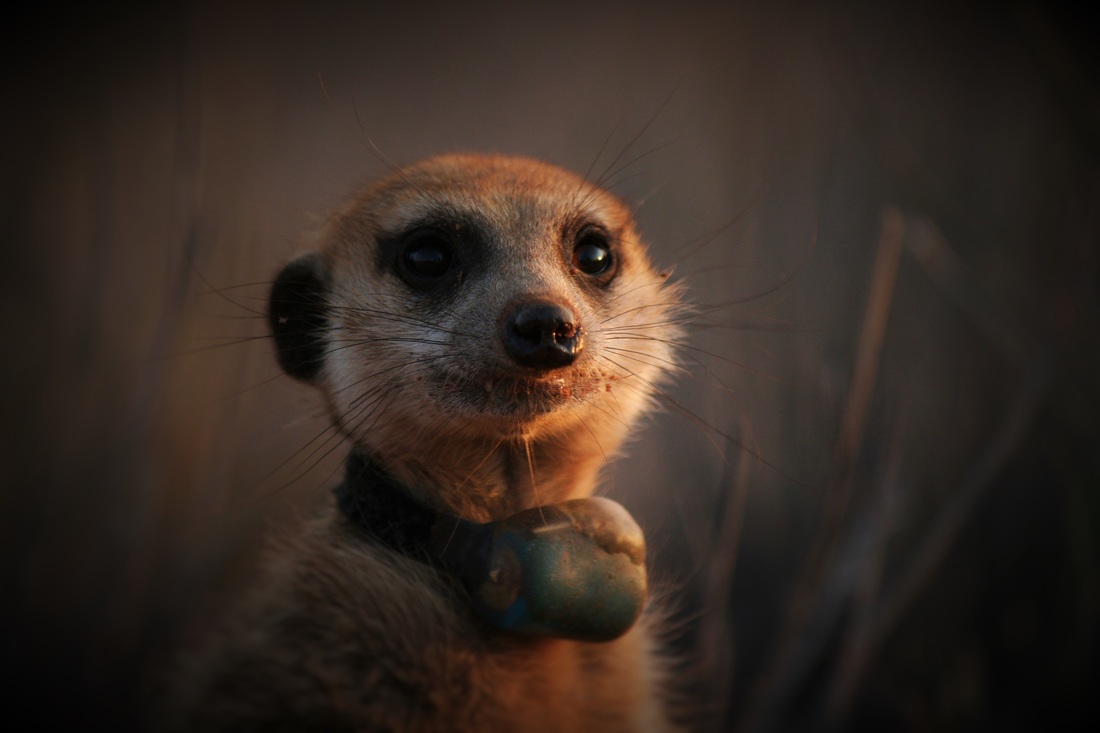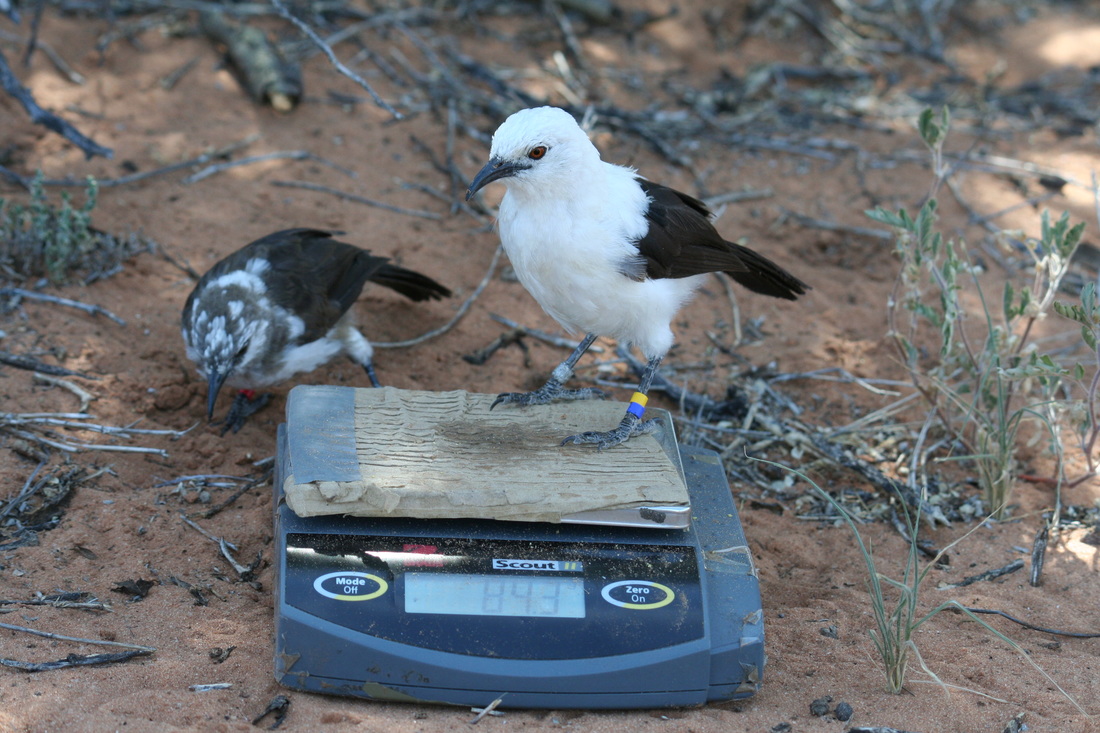What I want to briefly expand on here is the importance of long-term research in this discovery. The study animals used for this work are wild, they all live out their lives in the Kalahari and are beset by the hardships of competition, constant foraging and threats of predation. However, these meerkats (like the babblers that I worked on) are habituated to human observation. This habituation has huge benefits, it allows close observation of interactions, it allows for identifying individuals, it allows for field experiments to be done (be they playing back specific calls or tactically feeding specific meerkats as they did here!) but in the case of the meerkats (and the babblers) it allows researchers to weigh them multiple times a day. You may ask what does this have to do with long-term research? Well meerkats are naturally very skittish, they’re not very big and lots of things want to eat them. It typically takes between 12-24 months to habituate a group up to a good level, from spending hours sitting at a burrow as still as possible but humming the habituation song all the way to walking with them and weighing them. And to have a study population of between 16-25 groups that is a lot of man hours. To get around all of those groups on a regular enough basis you need a small army of researchers, constantly collecting weights, life-history data and helping out with experiments.
All of these ideas are summed up in a great paper entitled: Individuals and populations: the role of long-term, individual-based studies of animals in ecology and evolutionary biology. Long-term study populations exist in many species across all taxa. The meerkats, red deer, Arabian babblers, blue tits, marmots, big horn sheep and pied babblers are just the ones that come off the top of my head. All of these have contributed massively to our understanding of behavioural ecology, population biology and conservation. So when I see a paper like this new meerkat paper I don’t just see the work of the named authors (shout out to Matt Bell – legend) but also to the tens to hundreds of volunteer researchers who have kept those projects going over the decades of their existence (of which I was once one). I hope that after reading this that you’ll appreciate that too.
Huchard et al. (2016) Competitive growth in a cooperative mammal. Nature, doi:10.1038/nature17986
In many animal societies where hierarchies govern access to reproduction, the social rank of individuals is related to their age and weight1, 2, 3, 4, 5 and slow-growing animals may lose their place in breeding queues to younger ‘challengers’ that grow faster5, 6. The threat of being displaced might be expected to favour the evolution of competitive growth strategies, where individuals increase their own rate of growth in response to increases in the growth of potential rivals. Although growth rates have been shown to vary in relation to changes in the social environment in several vertebrates including fish2, 3, 7 and mammals8, it is not yet known whether individuals increase their growth rates in response to increases in the growth of particular reproductive rivals. Here we show that, in wild Kalahari meerkats (Suricata suricatta), subordinates of both sexes respond to experimentally induced increases in the growth of same-sex rivals by raising their own growth rate and food intake. In addition, when individuals acquire dominant status, they show a secondary period of accelerated growth whose magnitude increases if the difference between their own weight and that of the heaviest subordinate of the same sex in their group is small. Our results show that individuals adjust their growth to the size of their closest competitor and raise the possibility that similar plastic responses to the risk of competition may occur in other social mammals, including domestic animals and primates.



 RSS Feed
RSS Feed
